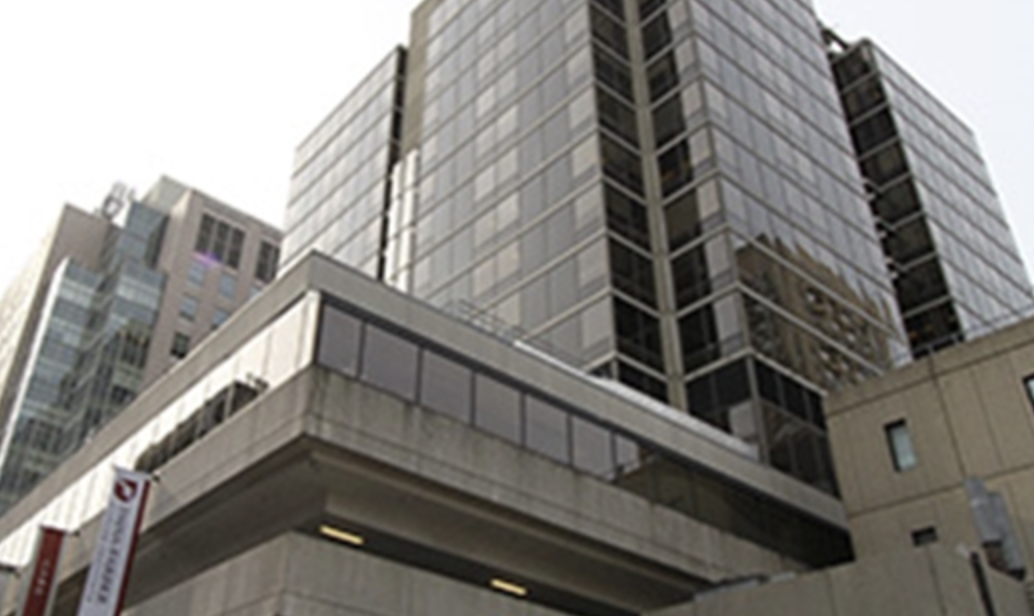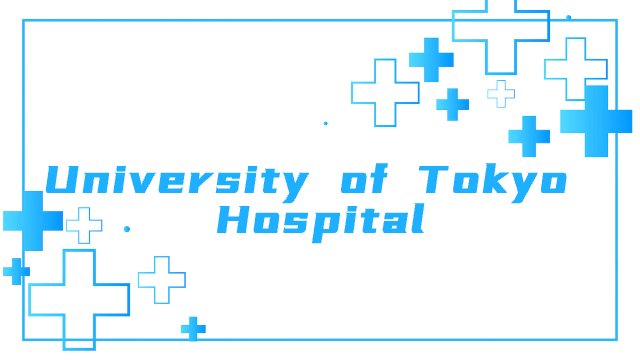Hospital
Heidelberg University Hospital
The University Hospital Heidelberg, located in Heidelberg, Germany, is one of Germany's leading major medical centres, treating around 80,000 inpatients and over one million outpatients each year.

University Hospital Heidelberg Hospital Description
The University Hospital Heidelberg, located in Heidelberg, Germany, is one of Germany's leading major medical centres, treating around 80,000 inpatients and over one million outpatients each year.

A long history and leading figures in the field
Heidelberg Medicine has a long history of over 600 years and has produced nine Nobel Prize winners in medicine (including a doctoral graduate, an honorary doctor and seven Heidelberg Institute scientists), in addition to a number of leading figures who are still active in the field.
Albrecht Kossel: Professor at the University of Heidelberg from 1901 to 1923 and winner of the Nobel Prize in Medicine in 1910 for his outstanding work on proteins and nucleic acids.
Otto Meyerhof: Nobel Prize in Medicine in 1922 for the discovery of important energy cycles in the biological reaction chain, Professor at the University of Heidelberg from 1949 to 1951.
Bert Sakmann: Professor at Heidelberg University since 1990, Nobel Prize in Medicine in 1991 for the development of a method that can be used to study the function of ion channels in individual cells, jointly with Erwin Neher.
Harald zur Hausen: Honorary Professor at the Faculty of Medicine, University of Heidelberg since 1988, awarded the Nobel Prize in Medicine in 2008 for his work on the relationship between human papillomavirus infection and cervical cancer.
Viktor vonWeizsäcker and Alexander Mitscherlich et al: laid a solid foundation for psychosomatic medicine, a branch of medicine that considers the mind to be as important as the body.
Vincenz Czerny and Karl Heinrich Bauer: led the establishment of an internationally renowned anti-cancer clinic and research institute. Today, hundreds of scientists in the laboratories of this clinic and research institute work together to achieve the same goal: the development of new forms of treatment and their rapid application in the treatment of cancer patients.
Top-ranked hospital worldwide in terms of overall strength
The University Hospital Heidelberg is a large, comprehensive medical centre with unique strengths in cancer treatment and proton heavy ion therapy, as well as being one of the world's top-ranked hospitals for comprehensive, holistic and high-quality care for patients with major diseases.
The Heidelberg University Hospital is ranked 14th in Newsweek's Global Hospital Rankings 2020, one of only two German hospitals in the top 20, and represents the top level of overall medical strength in Germany.

Beautiful hospital environment
Excellence in medical research and teaching
The Heidelberg Medical School enjoys an excellent reputation among researchers, faculty and students worldwide. Its strength is reflected in its participation in several ground-breaking international research consortia and its success in securing third-party funding. The following five major research areas are the current focus of scientific work: infectious diseases, cardiovascular research, neuroscience, translational and personalised oncology, and transplantation and personalised immunotherapy.
The hospital has close research collaborations with renowned institutions within and outside the university as well as with the German Cancer Research Centre, the Max Planck Institute for Medical Research and the European Molecular Biology Laboratory, which no other medical institution in Germany has yet managed to achieve. These institutes are located in close proximity to each other near the Neuenheimer Feld, allowing for active collaboration and scientific work on an international scale.
A pioneering institution in the field of cancer diagnosis and treatment
The National Centre for Tumour Diseases (NCT) in Heidelberg is a national pioneering institution in the field of cancer diagnosis and treatment. Since 2010, patients have been able to receive interdisciplinary treatment on the same premises, where experienced specialists from different departments work together to treat cancer patients. The hospital maintains close cooperation with the German Cancer Research Centre, thus ensuring that new treatment options can be developed and rapidly applied to medical practice.
In November 2009, the Heidelberg Ion Beam Therapy Centre (HIT) was opened under the direction of the hospital's Department of Radiation Oncology and Radiation Therapy, pioneering proton heavy ion therapy in Europe. Paediatric oncology patients, as well as adult patients suffering from specific tumours such as prostate tumours, lung tumours and liver tumours, can be effectively treated here. Two treatment sites and a research site opened in 2009, followed by a third site in 2012 with the world's first "carbon ion rotating rack", which allows the ion beam to rotate around the patient and irradiate the body at any angle from 360° to reach the tumour more optimally.

The 600-tonne carbon ion rotating frame

Ion beam treatment room
Europe's leading edge neurosurgery centre
The Department of Oncology Neurosurgery at Heidelberg University Hospital is Europe's leading neurosurgery centre, performing over 3,200 operations per year, 700 of which are brain tumours. The department is equipped with 74 beds, 14 of which are for intensive care patients. The medical team of the Neuro-Oncology Department consists of surgeons, nurses, physiotherapists and interpreters and receives many international patients from all over the world every year.

Medical Director of Neurosurgery, Heidelberg University Hospital
The department treats a number of conditions including
1,Primary brain tumours, such as pituitary tumours, gliomas and astrocytomas
2,Brain metastases
3, Skull base tumours, e.g. chordoma of the slope, meningioma of the skull base
4,Meningiomas
5,Spinal cord tumours, e.g. chordoma, chondrosarcoma
6,Childhood brain and spinal cord tumours such as ventricular meningioma, neural tube cell tumour
The advanced techniques used in surgery include
Computer-assisted surgical instruments: neuronavigation systems and modern microscopes (microsurgical techniques) allow tumours to be removed with millimetre accuracy.
Fluorescent staining of tumour tissue: this assists the neurosurgeon in differentiating tumour tissue from healthy tissue.
Endoscopic surgery: without opening the cranial cavity, the operation is performed through the nose.
Craniotomy while awake: for tumours located in the speech area, the patient can be intermittently awake (pain-free) during the removal of the tumour, thus monitoring and maintaining the patient's speech function. The psychologist will train the patient before the operation and provide continuous care during the operation.
Unique preoperative and intraoperative diagnostic techniques.
Preoperative preparation: MRI (magnetic field strength up to 3.0 Tesla)/CT diagnosis to visualise the function of the brain tissue surrounding the tumour (Neuroimaging Unit).
Intraoperative MRI (magnetic field strength of 1.5 Tesla)/CT imaging to see if the tumour has been completely removed or to determine if further surgery is required in the future.
Neurological monitoring: continuous monitoring of brain and nerve function during surgery to ensure timely detection of functional impairment.

National Centre for Oncological Diseases
The NCT is one of Germany's longest established "Comprehensive Cancer Centres" and has been continuously accredited as a "Centre of Excellence in Oncology" since 2010 and is recognised as a leading oncology centre in Germany. The NCT is operated by a number of prestigious institutions, including the Heidelberg University Hospital, the Heidelberg Medical School, the German Cancer Research Centre, the Heidelberg Chest Clinic and the German Cancer Support Organisation.
Ion Beam Therapy Centre
Since 2009, this highly effective and safe radiation therapy has been offered to patients with specific types of cancer and is the first medical centre in Europe to offer both proton and heavy ion therapy. At HIT, there is the world's first carbon ion rotating rack, which can irradiate the body at any angle of 360°, with up to 100,000 radiation examinations per second.

Centre
A leading centre for the diagnosis and treatment of pancreatic-related diseases, with special expertise in pancreatic cancer, acute pancreatitis, chronic pancreatitis, pancreatic neuroendocrine tumours (PNET), cystic pancreatic tumours and pancreatic intraductal papillary mucinous neoplasm (IPMN). Its large team of specialist doctors are clustered together for short waiting times, short distances between departments, fast treatment and excellent outcomes. In addition, the centre is technologically advanced and treats over 2,000 cases per year, with statistics showing high survival rates and few complications.
-
![]()
![]() HospitalFeb 17, 2026
HospitalFeb 17, 2026Dana-Farber Cancer Research, Teaching Affiliate, Harvard Medical School
-
![]()
![]() HospitalFeb 16, 2026
HospitalFeb 16, 2026Cancer Institute Hospital of JFCR
-
![]()
![]() HospitalFeb 15, 2026
HospitalFeb 15, 2026University of Tokyo Hospital - Top 10 Best Hospitals in the World
-
![]()
![]() HospitalFeb 14, 2026
HospitalFeb 14, 2026US National Children's Hospital
-
![]()
![]() HospitalFeb 13, 2026
HospitalFeb 13, 2026Brigham and Women's Hospital, Harvard Medical School, USA




